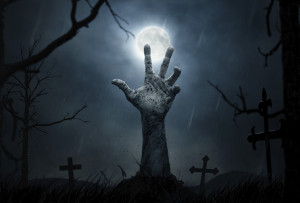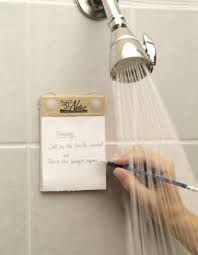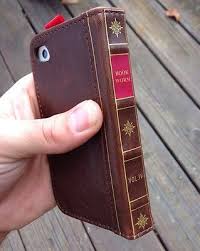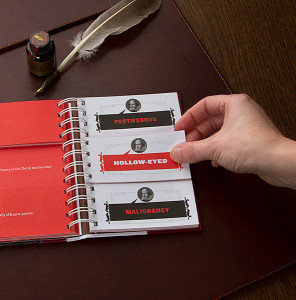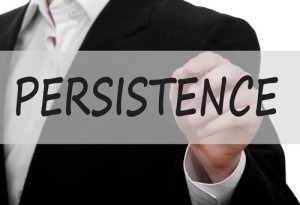
Photo via Shutterstock, purchased by Kathryn Lilley
Today we are doing a critique of an anonymous first-page submission. The title is EL CUCO (THE CUCKOO). After my comments, please add your thoughts and constructive criticism. (Note: Content contains strong language).
***
It was hot as hell. Four-thirty in the morning and it was already a fucking nightmare in her apartment. The ceiling fan pushed warm air around the room, and the feel of it against her skin reminded Silky of the hot, stale, breath of an ex-lover she almost killed back in ’72.
She slid into a light robe and slippers, tucked her big gun into the deep side pocket, and headed for her car, where she intended to blast the A/C and smoke a joint.
When Silky pushed through the broken screen door onto the porch, Steve was standing there smoking a cigarette, his painted toes tapping a private beat against the pealing gray floorboards.
“What the fuck are you doing up this early?” she said. “You scared the shit out of me – I thought you were that lunatic running around.”
Steve blew a column of out of the side of his mouth. “Christ,” he said. “What are you doing up?”
“It’s hot as fish grease in my apartment.”
Steve’s manicured eyebrows climbed into his hairline. “Wait – what are talking about, a lunatic?”
“Some nut,” she said, waving a dismissive hand. “He’s out there slashing throats.”
“Around here?”
Silky nodded.
Steve reflexively touched his throat. “I haven’t heard anything about a throat-slasher.”
“He’s out there,” Silky said confidently. “Believe me.”
“That’s awful.”
“There’s all kinds of fruitcakes out there. That’s why you never see me without this.” Silky pulled the big gun from her robe and held it up.
“Jesus!”
“And I won’t hesitate to use this,” Silky said. She discharged the clip and showed it to Steve. “You see? Loaded. I don’t fuck around.”
Silky slowly lowered herself onto the top stoop, her knees cracking like microwave popcorn. “And just think,” she said, “you almost got shot with this grizzly.” She rested the gun beside her. “Gimme a cigarette.”
Steve withdrew a cigarette from his pack and handed it to Silky. He flicked the lighter for her. “Me?” he said.
Silky held the cigarette against the flame until she got it going. She leveled her gaze at Steve, raised a perfectly sharp eyebrow.
“Yeah, you ,” she said.
“I almost got shot? When?”
“Are you high? Two minutes ago when I walked down here. You think I was expecting to bump into someone this early in the morning? Who else but the slasher is out this time of day?”
***
My comments:
This page has an engaging spirit to it. I think it could be much stronger after some issues are addressed. Let’s discuss the issues one at a time.
First, kill off all the adverbs
In general, it’s a good idea to be very sparing in the use of “ly” adverbs such as “Slowly,” and “confidently”. Adverbs are a weak way of conveying action.
Shorten sentence structure
Many of the sentences on this page are too long. The prose will be stronger and snappier once they are broken up. For example:
“The ceiling fan pushed warm air around the room, and the feel of it against her skin reminded Silky of the hot, stale, breath of an ex-lover she almost killed back in ’72.”
Break up as follows:
The ceiling fan pushed warm air around the room. The feel of it against her skin reminded Silky of the hot, stale, breath of an ex-lover she almost killed back in ’72.
And the following sentence:
“When Silky pushed through the broken screen door onto the porch, Steve was standing there smoking a cigarette, his painted toes tapping a private beat against the pealing gray floorboards.”
Can be broken up as follows:
“Silky pushed through the broken screen door onto the porch. She immediately felt a warm presence in the shadows. It was Steve. He stood in the shadows, smoking a cigarette, his painted toes tapping a private beat against the pealing peeling gray floorboards.”
Watch spelling
Spelling errors such as the one contained in the previous example are a death sentence for any first page submission. In addition to running spell check, the writer needs to make sure the spelling of the word is correct for its meaning in context. (“Pealing” is the sound of a bell. “Peeling” is how one removes the skin from an orange.)
Keep cause with effect
When Silky says, “I thought you were that lunatic running around,” Steve’s response to the statement should follow immediately. The way it’s currently written, he responds to the first part of her statement (regarding the hour of day) before he reacts to the important part of her speech (a lunatic running around).
Vary the language for impact
Silky says, “You scared the shit out of me – I thought you were that lunatic running around.”
Steve eventually responds by using identical language. ““Wait – what are talking about, a lunatic?”
Steve’s response should be revised to use wording that is different than hers.
Avoid repeating phrases
“Big gun” is repeated twice on the same page, which is one time too many.
Use specific language
“Big gun” is vague language. Indicate what type of gun is being used. Using specific language helps reveal character.
A note about similes
Similes and metaphors can be effective when used well. The simile in this page, “…her knees cracking like microwave popcorn” didn’t quite work for me. “Popping” might be a better gerund to use in this case, but I would still jettison the simile.
Strong language
I’m not a prude about the use of strong language in fiction, but in this instance, I don’t think the F-bomb and related terms add anything interesting to the characters or scene.
Monitor tics and jerks
For some reason, many writers, including professionals, love to use eyebrows and other tics to convey a character’s reaction. This page has a little too much eyebrow action going on.
“Steve’s manicured eyebrows climbed into his hairline.”
“She…raised a perfectly sharp eyebrow.”
Convey action before dialogue
In this scene, Silky tells Steve that she almost shot him, but I didn’t get a sense of that during the action that leads up to their dialogue. Before she says to Steve, “I almost shot you,” the reader needs to see her going onto the porch, feeling a presence in the shadows, raising the gun barrel, etc.
Title note
I had to look up the title, EL CUCO, on a translator to verify what it meant. That’s not good. The story title is the first opportunity to engage a reader. If the reader doesn’t understand what the title means, that opportunity is lost.
Overall
Even though I’ve called out quite a few issues with this page, I still felt engaged by the story, and found myself liking the characters. That’s half the battle right there–everything else is fixable with careful editing.
Thank you to the writer for submitting this page for discussion.
What do you think of this first page, TKZ’ers? Any comments to add?
 Have you ever wondered how to add emotional depth to a scene you’ve written? There are a number of techniques you can use to inject emotional depth and drama into a scene. Here are my top four techniques for scene deepening:
Have you ever wondered how to add emotional depth to a scene you’ve written? There are a number of techniques you can use to inject emotional depth and drama into a scene. Here are my top four techniques for scene deepening:



